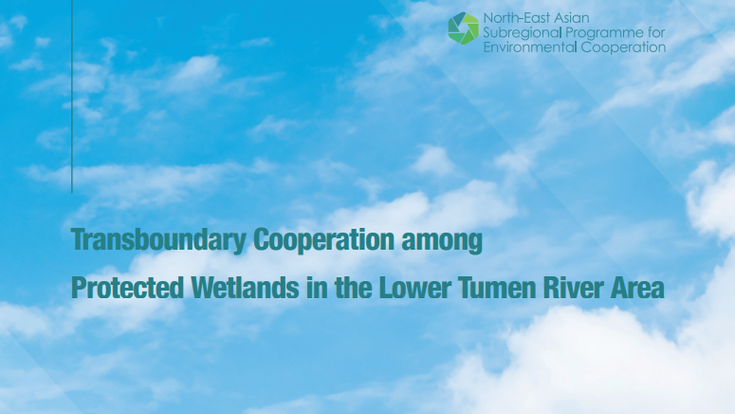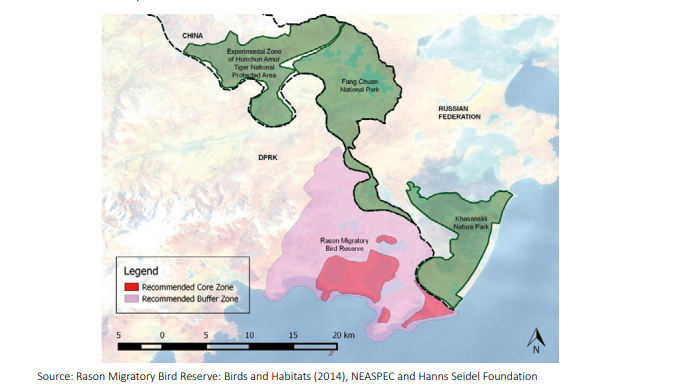Publication
NEASPEC's Report Highlights Transboundary Conservation Efforts in Lower Tumen River Area

The North-East Asian Subregional Programme for Environmental Cooperation (NEASPEC) has published an informative report by the name of “Transboundary Cooperation among Protected Wetlands in the Lower Tumen River Area”. The report delves into the developments in transboundary cooperation in the ecologically vital Lower Tumen River region. The Seoul Office of the Hanns Seidel Foundation has provided data for this use.
Established in 1993, NEASPEC stands as a pragmatic intergovernmental cooperation framework actively addressing environmental challenges in North-East Asia. The alliance comprises six member states: China, DPR Korea, Japan, Mongolia, the Republic of Korea (ROK), and the Russian Federation. NEASPEC's core mission revolves around promoting regional collaboration on various environmental issues, from tackling air pollution and conserving biodiversity to safeguarding marine protected areas, advancing low-carbon cities, and combatting desertification and land degradation.

One of the key focal points of this report is the Tumen River Estuary, a region known for its ecological significance, teeming with rich biodiversity and crucial habitats for endangered species. China, DPR Korea, and the Russian Federation have already recognized its importance by designating it as a nature reserve, setting a noteworthy precedent for transboundary cooperation in biodiversity and wetlands conservation among NEASPEC member states.
In 2014, a field survey was carried out by the Hanns Seidel Foundation Korea Office (HSF) in collaboration with the United Nations ESCAP Subregional Office for East and North-East Asia (ESCAP-SOENEA) within the Rason Migratory Bird Reserve in DPR Korea. This survey provided vital insights into the habitat, meeting the stringent criteria for Ramsar site recognition as an "internationally important wetland." Notably, the survey confirmed support for over 100 bird species in the region, culminating in a strong recommendation for DPR Korea to join the Ramsar Convention and designate the Rason Migratory Bird Reserve as a Ramsar Site. Such recognition promises improved conservation and protection efforts for this ecologically crucial area.
NEASPEC's latest report, backed by data contributions from HSF, signifies a significant step in promoting cross-border environmental cooperation and protection in North-East Asia. It is a reflection of the collective dedication and commitment of NEASPEC member states to ensure the well-being of their natural environment.
You can find the complete report here.
